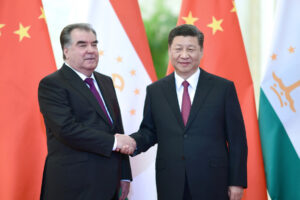Deputy Finance Minister Suahasil Nazara stated that 2023 will bring opportunities for Indonesia to find new sources of state revenue, as in this year, the country will enter and continue its recovery from the pandemic.
“There are at least four new sources of revenue, including the downstream industry, use of domestic products with high local content, micro, small, and medium enterprises (MSMEs), and the green economy,” he stated at the Directorate General of Customs and Excise Leadership Coordination Meeting (DJBC) as quoted from an official statement received here, Monday.
Nazara explained that state revenue has two important functions in the form of being used as state expenditure for the public and to encourage economic activity through the provision of revenue incentives.
These two revenue functions, both carried out by the Directorate General of Taxes (DGT) and DJBC, will contribute to economic growth, lowering poverty, reducing unemployment, reducing inequality, and others, he highlighted.
The deputy minister also thanked all levels of DGCE for their performance in 2022.
The realization of temporary customs and excise revenues in 2022 had reached Rp317.8 trillion, or 122.2 percent of the target of Rp299 trillion, and increased 18 percent from Rp269.2 trillion recorded during the same period in the previous year (year-on-year/yoy).
Nazara stated that despite 2022 being a year replete with challenges, the government had managed to face the year well, and signs of economic recovery had begun to appear and continue.
He also urged all levels of DJBC to continue to monitor economic developments by carrying out tasks related to customs and excise.
In addition, he drew attention to export earnings (DHE) and the declining prices for natural resources products, such as coal, crude palm oil (CPO), and oil that will have an impact on revenues as well as other issues related to DJBC’s duties in the meeting.
“These are some thoughts that are worth mentioning. We do not only talk about the economic substance but also various kinds of management and integrity aspects regarding facilities, staff responsibility, and ranks,” he concluded.















